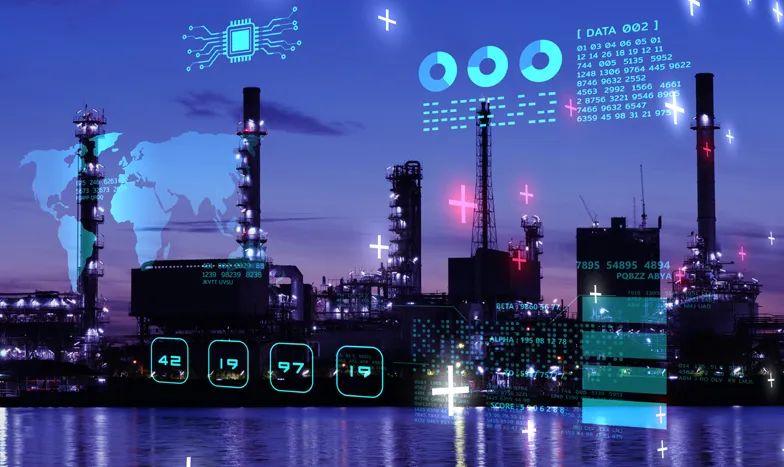- Home
- Academics
- School of Business
- MBA
- Business Analytics in collaboration with KPMG
MBA Business Analytics in Collaboration with KPMG
Program Details
The MBA Business Analytics in Collaboration with KPMG by UPES offers a comprehensive curriculum that combines core business courses with specialized analytics training. Through this program, students gain the expertise to leverage data-driven insights for informed decision-making. The collaboration with KPMG ensures that the curriculum remains up-to-date and industry-relevant, providing students with valuable real-world knowledge and networking opportunities.
The program structure includes a mix of theoretical learning and practical projects. Real-world projects and case studies enable students to apply their analytical skills to solve business challenges, honing their problem-solving abilities. The course's strong emphasis on data mining, predictive analytics, machine learning, statistical modeling, data visualization, and big data management equips students with a well-rounded skill set.
Students can choose from two specializations: Energy Analytics and Data Mining. The Energy Analytics specialization caters to the energy industry's unique needs, covering energy markets, policy, renewable energy technologies, and sustainability. The Data Mining specialization focuses on teaching techniques that help extract valuable patterns and insights from vast datasets, including data preprocessing, mining algorithms, clustering, and data visualization. Overall, the MBA Business Analytics in Collaboration with KPMG by UPES School of Business offers a comprehensive and industry-driven program that empowers students to excel in the field of business analytics, equipping them for rewarding careers in a data-centric world.
Program Highlights
- Students undertake major projects and summer internships with companies, providing hands-on experience in analytics and data-driven decision-making for business or consulting.
- The MBA in Business Analytics in collaboration with KPMG program includes real-world case studies, industry visits, and guest lectures from industry experts, ensuring students are well-prepared for the challenges of the business analytics domain.
- Students gain expertise in a range of programming skills, software, and technologies, including SPSS, Tableau, Power BI, Advanced Excel, R-studio, Python, and SQL.
- The MBA in Business Analytics in collaboration with KPMG program fosters student and faculty exchange, research projects, seminars, conferences, and internships, creating opportunities for a global perspective in business analytics.
- The UPES School of Business offers state-of-the-art facilities, including modern smart classrooms, a well-equipped Analytics Lab, a well-stocked library, and advanced analytical tools.
- Students have the chance to participate in student exchange, study abroad, semester exchange programs with leading global partner management institutes of UPES, enhancing their international exposure and networking opportunities.
Future Scope / Industry Trends
The future scope for an MBA in Business Analytics in collaboration with KPMG is highly promising due to the growing significance of data-driven decision-making in various industries. The program offers expertise in business analytics, data mining, AI, and more, making graduates highly sought after by organizations seeking data insights for optimizing operations and informed decision-making. With advancements in technology, there will be a shift towards more sophisticated analytics techniques like AI, machine learning, and predictive modeling, further increasing demand for professionals with expertise in these areas. Effective communication of insights will also be crucial for professionals to excel in the field. Moreover, the energy industry's increasing focus on data-driven decision-making and sustainability initiatives will drive demand for experts in energy analytics. Professionals with specialization in energy analytics will have opportunities to contribute to renewable energy projects and optimize energy systems using advanced technologies like AI, machine learning, IoT, and big data analytics. To make the most of these prospects, staying updated with industry trends, enhancing skills, and networking within the energy sector will be essential for a rewarding career.
Career Opportunities
Completing the MBA Business Analytics in Collaboration with KPMG program at UPES School of Business opens a plethora of promising career opportunities for graduates. Equipped with a powerful blend of business acumen and analytical expertise, graduates can thrive in various roles across industries. They can pursue lucrative careers as data analysts, business intelligence managers, financial analysts, marketing strategists, or supply chain analysts, to name a few. Additionally, the partnership with KPMG offers a unique advantage, providing access to a wide network of industry professionals and potential employers. Graduates are well-prepared to tackle the evolving challenges of the data-driven business landscape and make significant contributions to the success of organizations worldwide.
Placements
The MBA Business Analytics in Collaboration with KPMG program has witnessed notable improvements in placements in recent years. Various renowned companies such as Flipkart, Reliance Industries, HUL, GATI KWE, Adani Wilmar, Accenture, Deloitte, Kuehne Nagel, Xiaomi, TATA Croma, Odex, Transystem, PI Industries, and others provide attractive job opportunities to our students. Additionally, numerous mid-sized start-ups also express interest in hiring our postgraduates. Job roles available for MBA graduates include Demand Planner, Supply Planner, Logistics Network Design, Supply Chain Analyst, Production Planning, Procurement, and Business Analyst. For freshers specializing in data mining, the starting salary typically ranges from INR 6-30 lakh per annum, depending on their skills, knowledge, and exposure.
Fee Structure
Click here for detailed Fee Structure.
Curriculum
Semester 1
| Course | L | T | P | Credit |
|---|---|---|---|---|
| Organizational Behaviour | 3 | 0 | 0 | 3 |
| Marketing Management | 3 | 0 | 0 | 3 |
| Managerial Economics | 3 | 0 | 0 | 3 |
| Accounting for Managers | 3 | 0 | 0 | 3 |
| Quantitative Techniques for Managers | 3 | 0 | 0 | 3 |
| Business Communication | 2 | 0 | 0 | 2 |
| Programming for Analytics | 2 | 0 | 2 | 3 |
| Business Environment | 2 | 0 | 0 | 2 |
| TOTAL | 22 |
Semester 2
| Course | L | T | P | Credit |
|---|---|---|---|---|
| Human Resource Management | 3 | 0 | 0 | 3 |
| Financial Management | 3 | 0 | 0 | 3 |
| Operations Management | 3 | 0 | 0 | 3 |
| Predictive Modeling | 2 | 0 | 2 | 3 |
| Business Research Methods | 3 | 0 | 0 | 3 |
| Industrial Visit | 0 | 0 | 0 | 1 |
| Business Ethics and CSR | 2 | 0 | 0 | 2 |
| Managing Digital Transformation | 3 | 0 | 0 | 3 |
| Specialization Paper-II (Specialization I: Cognitive Analytics, Course-Natural Language Processing, Specialization II: Data Mining, Course- Overview of Data Mining) | 3 | 0 | 0 | 3 |
| Business Analytics | 2 | 0 | 2 | 3 |
| TOTAL | 27 |
Semester 3
| Course | L | T | P | Credit |
|---|---|---|---|---|
| Strategic Management | 3 | 0 | 0 | 3 |
| Business Intelligence | 3 | 0 | 0 | 3 |
| Business Modelling with Spreadsheets | 2 | 0 | 2 | 3 |
| Big Data Analytics | 2 | 0 | 2 | 3 |
| Database System & Database Management | 3 | 0 | 0 | 3 |
| Experiential mentored project | 0 | 0 | 6 | 3 |
| Specialization Paper - II (Specialization 1: Cognitive Analytics, Course - Data Visualization Specialization 2: Data Mining, Course - Business Process Management) | 3 | 0 | 0 | 3 |
| Summer Internship | 0 | 0 | 0 | 2 |
| Project Management | 3 | 0 | 0 | 3 |
| Global context of Business | 1 | 0 | 0 | 1 |
| TOTAL | 27 |
Semester 4
| Course | L | T | P | Credit |
|---|---|---|---|---|
| Social & Web Analytics | 3 | 0 | 0 | 3 |
| Innovation and Entrepreneurship | 3 | 0 | 0 | 3 |
| Dissertation | 0 | 0 | 0 | 4 |
| Environmental, Social and Governance | 3 | 0 | 0 | 3 |
| AI for Managers | 3 | 0 | 0 | 3 |
| TOTAL | 16 |
Eligibility
Interested students must meet the minimum eligibility criteria for MBA Business Analytics in Collaboration with KPMG, which are as follows: Minimum 50% marks in Class X, XII and Graduation. Graduation From a recognized University in any stream.
Selection Criteria
The selection criteria for students interested in pursuing MBA Business Analytics in Collaboration with KPMG offered by UPES relies on the individual's performance in UPESMET / National Level Exams/ CUET followed by Personal Interview.
Non-Examination Pathways: Students having a minimum eligible MAT /CMAT 2025 score of 70 percentile will be exempted from the UPES Management Entrance Test and will only be called for Group Discussion and Interview, if qualified. Valid 50 percentile and above score of CAT 2024/ XAT 2025 A score of minimum 400 or above for GMAT, a score of 120 and above in NMAT 2024 / 25 scores will also be accepted.
Suggested videos


